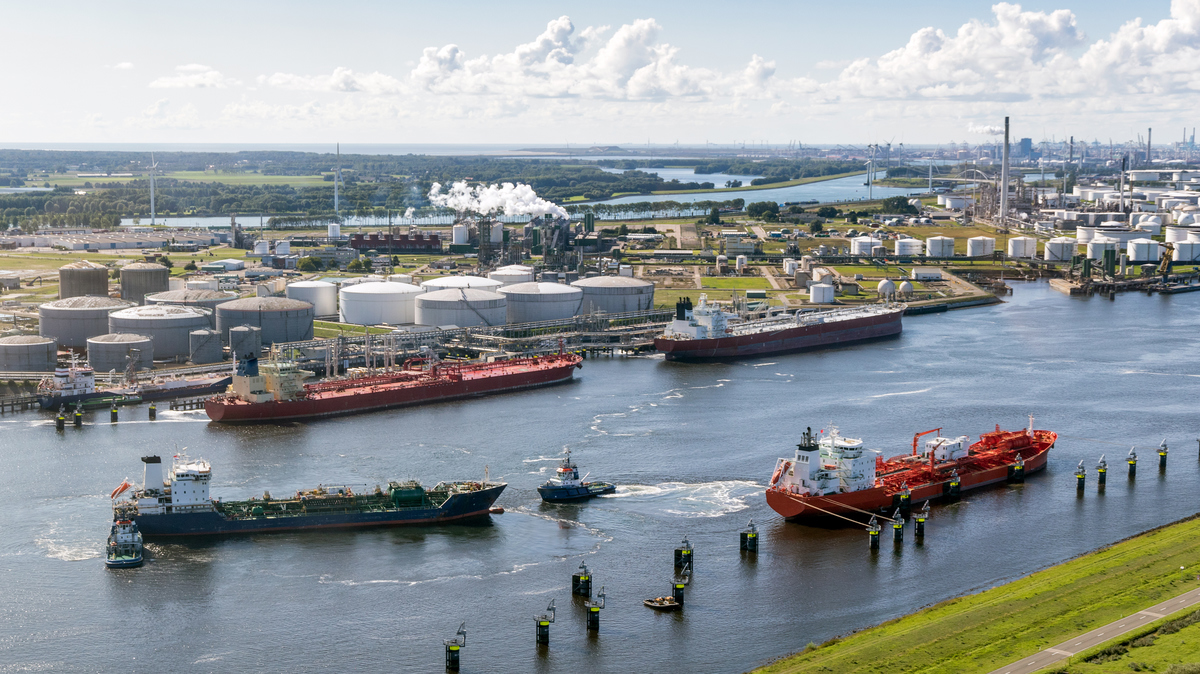EU needs to “go bolder” for net-zero by 2050 - T&E and ECSA
Voices from the European shipping industry and non-governmental organisations have welcomed the FuelEU Maritime proposal, but some believe the current mandate is “not enough” to achieve net-zero emissions by 2050.

PHOTO: Aerial view of the Port of Rotterdam in the Netherlands. Getty Images
EU Parliament adopts FuelEU Maritime proposal
The maritime sector will have to cut the greenhouse gas (GHG) intensity of the energy used on board ships by 2% as of 2025, 20% as of 2035, and 80% as of 2050 compared to 2020 levels.
These targets will apply to ships above 5,000 gross tonnes (GT), to all energy used onboard ships in or between EU ports, and to 50% of the energy used on voyages where the departure or arrival port is outside of the EU.
The proposal also mandates companies that operate three or more ships above 5,000 GT to use at least 2% renewable fuels of non-biological origin (RFNBOs or hydrogen-based fuels), and for container ships and passenger ships docked at EU ports for more than two hours to use on-shore power.
The European Parliament, represented by MEP Jörgen Warborn, will now negotiate the final legislation with the EU member states. Discussions are expected to start before the end of October.
"Not enough," counter major European bodies
Although the European Community Shipowners’ Associations (ECSA) and Transport & Environment (T&E) support the proposal to decarbonise shipping fuels by imposing tighter targets, they think that more must be done in order for shipping to become net zero.
ECSA is the voice of the European shipping industry and T&E is Europe’s umbrella organisation for sustainable transport non-governmental organisations.
Stricter GHG emission reduction targets will mean that LNG's lifetime as a compliant fuel option will be shortened, but it will not stop the shift to LNG as an alternative fuel, T&E argues, saying "it does indicate that fossil LNG in shipping has no long-term future."
T&E calls on the EU to "go bolder" by raising the 2% RFNBO sub-quota to at least 6% in order to meet the Paris Climate Agreement's 1.5°C target.
“The green shipping fuel mandate will kickstart the production of hydrogen-based fuels by providing investment security for fuel producers,” adds Delphine Gozillon, sustainable shipping officer at T&E.
T&E highlights the European Parliament's failure to announce a more ambitious net zero GHG target for 2050, which would effectively phase out GHG-emitting fuels.
According to ECSA, the vote adds an obligation for maritime fuel suppliers to ensure clean fuels are available at ports in sufficient quantities. And ECSA calls for additional measures from the European Commission if supply does not meet demand.
By Konica Bhatt
Please get in touch with comments or additional info to news@engine.online






